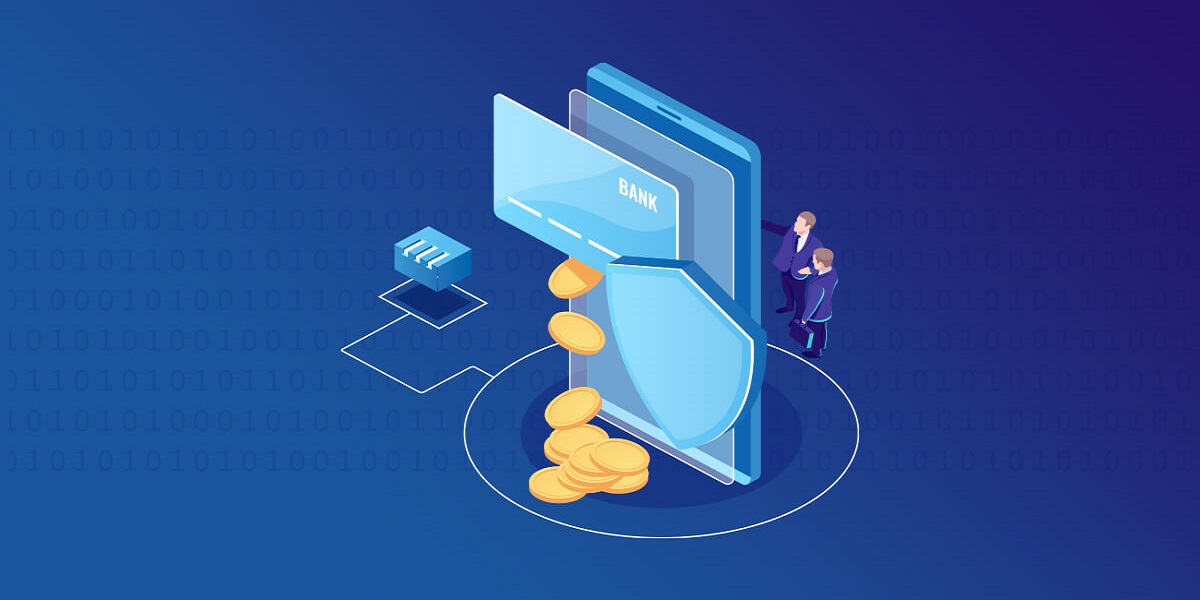How To Implement Blockchain In Fintech App Development?
- By Amara Hazel
- 15-11-2022
- Blockchain

Since its inception, blockchain has shown to be valuable in a variety of businesses. It is a decentralized ledger technology in which no single individual or community is in charge. Blockchain technology works by storing data records in the form of a chain of blocks, eliminating the need for a middleman. Because blockchain records are unchangeable, it becomes one of the most secure systems the world has ever seen.
This is the level of security that the fintech industry has long desired. The fintech industry has been a pioneer in lowering transaction costs. Blockchain is the ideal solution for reducing intermediary transaction costs. That is not the only blockchain application in finance; there are plenty of others.
We will go over some of the most important blockchain applications in finance. But, before we get into the applications, consider why the finance business requires blockchain. Is it just for security, or is there something else going on?
Fintech & Blockchain: A Match Made In Heaven
The most important, but not the only, factor why the finance sector requires blockchain is security. Fintech companies frequently confront trust difficulties. They spend a lot of money to develop a secure network for financial transactions to build trust. It indirectly raises middleman transaction fees. According to a McKinsey report, remittance companies earn $40 billion per year through transaction fees.
This is where blockchain enters the picture. For starters, it is inexpensive and secure. Furthermore, it eliminates middlemen, allowing for lower transaction fees.
How Blockchain Is Transforming The Fintech Industry?
When discussing the impact of blockchain technology in fintech, the ideal way to examine and comprehend the impact is to concentrate on key economic sectors. So, let us move on to the subparts.
With such trust and security, blockchain applications in fintech have the potential to transform the industry. Here are some of the most common applications that can be simply integrated into the financial sector.
1. Middle-man-free transfers
Financial authorities charge us transaction fees when we use our own money. Although the money is ours, the governing bodies implement the majority of the rules and regulations. Blockchain applications allow you to send money anywhere in the globe at considerably lower transaction fees. Blockchain eliminates all intermediaries and all associated costs with peer-to-peer transactions. Furthermore, its decentralized nature lets us have complete control over our money.
2. Validating digital identity
Blockchain technology provides end users with the ability to control their digital identities. After completing the registration procedure, users can securely transmit payments or data using their private keys. This eliminates any dangers associated with transferring money to the wrong individual. Regardless of who is on the other end of the phone, end users will never have to worry.
3. Developing smart contracts
Among the most effective applications of blockchain technology is smart contracts. They are essentially a piece of code that runs automatically once the agreed-upon criteria are met. As a result of the auto-implementation capability, the network chain is enhanced. The loans department will be an easy-to-understand use case for smart contracts.
4. Financing for trade
Several people have traditionally used trading to supplement their income. However, several intermediaries are required, including brokers, Demat agents, and the stock exchange. It is also associated with several risks and dubious techniques. Blockchain can play a variety of functions in the stock lifecycle, including:
It can cut out multiple middlemen to make the process easier.
It can close stock cycle loopholes by making the process entirely transparent.
It can also protect the stock exchange network by keeping immutable data records.
5. Streamlining cross-border payments
Even if you make withdrawals from another bank's ATM, both banks must communicate to verify and confirm the account state and details, such as the total balance for processing cash withdrawals. The essence of the narrative is that cross-border payments need a significant amount of processing time, which blockchain can cut. Banks and other financial institutions can simply upload and access any data required for transactions if they join a single blockchain network.
6. Defend against cyber fraud
Fintech firms manage sensitive financial data. As a result, even a minor breach can cost them a fortune. The architecture of blockchain technology makes it among the most, if not the most, secure technologies available. Storage and transfer of data are encrypted with hashes. Furthermore, the blockchain is a decentralized ledger network that stores data as a chain. As a result, anyone attempting to infiltrate the network and steal data will find it difficult to change data in this ledger.
7. Audit-proof data storage
Review and auditing are essential components of the fintech industry. Auditing and processing paperwork take a considerable amount of time at present. Blockchain technology only allows for the insertion of new blocks without interfering with existing ones. This means that anyone in the banking industry can upload and access historical data for quick and smooth auditing.
Given what we know about blockchain and finance applications, you're probably wondering about its future. Finally, take the appropriate action. However, it is necessary to understand how and why all fintech organizations are utilizing blockchain technology to achieve better results.
Let us now look at some of the benefits of implementing blockchain in fintech. Later, we'll go over some of the real-world applications of blockchain in finance.
How does blockchain contribute to the financial sector?
Blockchain technology has enabled inclusive, open, and secure business networks, allowing digital security to be supplied in a short amount of time at lower unit prices and a higher level of customization. Blockchain technology in finance has matured in recent years, providing the following benefits:
1) Transparency - Blockchain technology uses protocols, mutualized norms, and shared processes to operate as a single source of growth for network participants. It improves data integrity while also improving the client experience through speedier processing.
2) Security - Blockchain in finance has allowed the construction of secure application code that is expressly designed to be tamper-proof against malevolent and third parties, making manipulation or hacking almost difficult.
3) Trust - The immutable and transparent ledger facilitates data collaboration and agreement-making among multiple participants in a business network. Blockchain is a distributed ledger system for securely recording, managing, storing, and transferring transactions across multiple domains.
4) Privacy - Blockchain in finance provides market-leading technologies for data privacy across several layers of software stacks, allowing for selective data exchange in the corporate network. This increases confidence and transparency while preserving security and privacy.
5) Programmability - It facilitates the generation and execution of smart contracts, which are deterministic and tamper-proof software that streamlines business logic, resulting in improved programmability, efficiency, and confidence.
6) Fast and scalable - Blockchain in finance is made up of hybrid and private networks that are designed to handle hundreds of transactions per second. It fully supports the interoperability of public and private change, providing organizations with incredible resilience and worldwide reach.
Blockchain-Based FinTech Companies
To ensure that blockchain technology and cryptocurrencies are widely distributed in the financial sector, we have compiled a list of the most active and successful projects:
We.Trade
IBM collaborated with 12 major European banks to create this platform. The platform's purpose is to offer a comprehensive, safe, and simple trading environment for businesses and banks. We.trade enables businesses of all sizes to trade worldwide effortlessly and securely, thereby stimulating global economic growth. We.trade has two major advantages: a distributed ledger and smart contracts. Since July 2018, the We.trade platform has been fully engaged in real-world transactions and works in 13 countries. More than 400 businesses now use the platform.
Circle
As per Forbes, this platform is one of the blockchain businesses on the list of the most creative fintech companies in 2019. Circle is working on a peer-to-peer payment system. The Circle Pay platform, which allows customers to store, transmit, and receive traditional cash, is one of the company's main products. Circle Pay is currently available in 29 countries. Circle Invest makes it simple for consumers to invest in cryptocurrencies such as Bitcoin, Ethereum Classic, Bitcoin Cash, Stellar, Ethereum, EOS, and BAT. Circle also bought Poloniex, an American bitcoin exchange, at the start of 2018.
Robinhood
Robinhood was also named by Forbes as one of the most creative fintech businesses of 2019. Robinhood has been in business since 2013. The startup created a smartphone application that allows users to invest in stocks, equity funds, options, and cryptocurrencies for free. The company earns money via earning interest on its clients' cash balances and margin loans, as well as by receiving payments for order flows. The application is now only available in 37 US states, although it is used by around 4 million investors. The corporation is worth $5.6 billion, according to estimates.
Ripple
This universal solution enables you to instantly transfer nearly any cash to any location on the planet. The platform's internal currency, XRP, is used by the system. It enables users to convert any other currency on the network fast. One of the network's key advantages is that it only takes 4 seconds to process a transaction. Furthermore, the system is very scalable and capable of processing over 1500 transactions per second. Ripple uses its blockchain network, RippleNet, to conduct transactions. More than 200 banks and financial organizations have already joined the network, including Merrill Lynch, Union Credit, SED, UBS, and Santander.
Blockchain's Role In The Finance Industry In The Future!
When discussing the future of blockchain in fintech, the adoption of technology and the application of blockchain in fintech is rapidly expanding. The blockchain-based fintech market is estimated to be worth USD 6700.63 Mn by 2023, growing at a CAGR of 75.2% during the forecast period.
Fintech blockchain applications will cause havoc in the sector. In the future, not only banking but also non-banking financial services such as asset and wealth management would profit from this platform.
Financial institutions of all sizes should seek help on how to integrate and leverage this advanced technology into their business model to set their benchmarks for enhanced productivity, lower cost, and customer happiness along the value chain.
Final Thoughts!
Have a brilliant idea for a fintech app? Trust iByte Infomatics to be your reliable mobile app development company collaborator. With incredible future-proof technology, we are enthusiastic to increase your customer experience, expand your efficiency, and supercharge your business performance.
So, if you're a fintech company thinking that now is the moment to lay the groundwork for the tokenization of the banking industry, act immediately! Contact our professionals to discuss the potential and requirements for a prosperous future.


.jpg)
.jpg)
.jpg)
